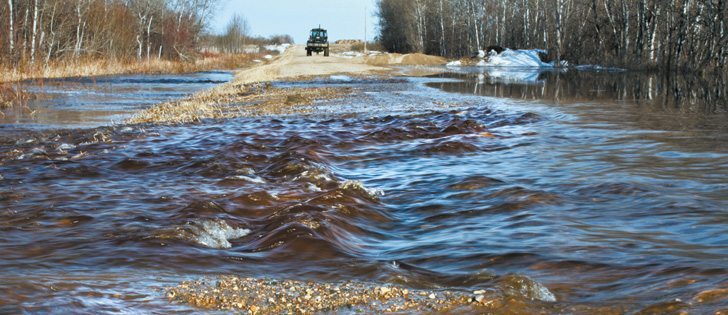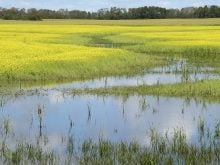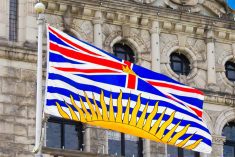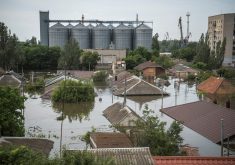Flooding was a problem last year not only in Manitoba but also in Saskatchewan.
Both provinces faced enormous costs associated with lost crops, washed out roads and culverts and destroyed homes.
In fact, flooding in Manitoba will cost taxpayers $1 billion in damages and flood-fighting efforts.
This wasn’t the first year Manitoba was forced to deal with water issues. We’ve been plagued by a number of consecutive wet years that have affected people’s livelihoods and caused tremendous emotional stress and hardship for hardworking Manitobans.
Read Also

High prices see cow-calf producers rushing to incorporate
Farm accountants are reporting a steady stream of cow-calf producers rushing to get their operations incorporated ahead of selling their calves this fall.
These are the people who are enduring the real costs of the flood, yet as a province, we haven’t done nearly enough in terms of implementing real solutions to this recurring issue.
The Saskatchewan Association of Rural Municipalities, which witnessed the devastation that flooding brought to its province, realized the ramifications of flooding on the land, and more specifically in terms of drainage and how that affects people and property downstream.
As public demand for accountability in the drainage decision-making process continues to grow, SARM recently approved a resolution regarding non-permitted drainage at its midterm convention last fall.
The resolution reads: “Enforcement of drainage legislation: whereas municipalities and landowners are experiencing danger to infrastructure and property from non-permitted drainage activities, which creates financial hardship for both municipalities and landowners; Be it resolved that SARM lobby the provincial government to enforce provincial land drainage legislation.”
Saskatchewan leaders have taken up the cause of encouraging the enforcement of existing drainage legislation to reduce the financial and physical effects of having more water than they can handle.
Manitoba and Saskatchewan both faced unprecedented levels of flooding in 2011, and in both provinces, wetlands continue to be lost at alarming rates. The science is clear: wetland drainage makes flooding worse.
Enforcing drainage regulations will not be easy or, in some cases, popular, but it is essential if we are to better manage our surface water resources in the face of increasingly variable climate extremes.
These Saskatchewan municipal leaders get it. They realize that what they are doing to the land not only affects their own province but also their neighbours to the east.
They realize that what they are sending downstream, not just water but also sediment and nutrients, is causing water quality problems in many of our rivers and lakes.
But most importantly, they are doing something about it.
In the past, Manitoba municipalities put forward similar resolutions that resulted in increased awareness of the effects of unrestricted drainage to the government, but it’s time this issue gets back on the provincial agenda.
We need to move forward in a more proactive way to raise the awareness of wetland loss and how this loss adds to our flooding woes, and put a stop to it once and for all.
An independent flood review is being debated in political circles and the media.
If this review does happen, it absolutely must include an evaluation of the effects of wetland drainage and degradation, and provide recommendations to protect and restore their flood-fighting capabilities.
Politics aside, whether we do a review or not, we need to stop draining wetlands or our next flood will be worse.
Grant is manager of provincial operation for Ducks Unlimited Canada in Manitoba.















